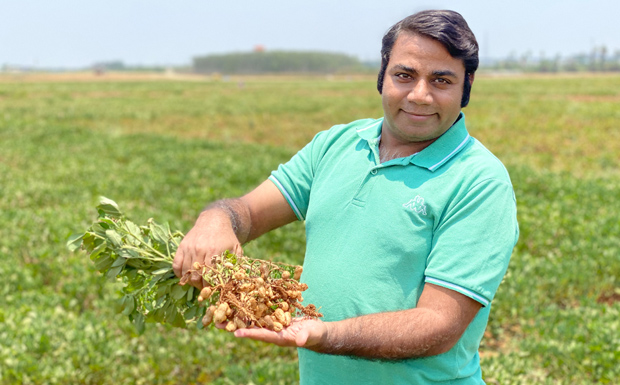
May 22, 2020
Scientists believe they have settled a debate about the origins of the peanut … did the first modern plants arise 10,000 or 450,000 years ago?
Researchers from the University of Western Australia (UWA), the International Crops Research Institute for the Semi-Arid Tropics (ICRISAT) in India and the Fujian Agriculture and Forestry University in China sequenced the peanut’s genome in 2019 and published the results in the journal Nature Genetics.
At the same time, a team of researchers from the US-based International Peanut Genome Initiative also sequenced the peanut, publishing their results in the same issue.
But soon after the publication, a debate arose due to a difference in findings regarding the timeline of when the peanut originated.
The first team, which included the Australian researchers, suggested the modern peanut arose from the hybridisation of two wild ancestral species about 450,000 years ago,
The second team suggested the origin was less than 10,000 years ago.
Prof Rajeev Varshney, Adjunct Professor at the UWA’s Institute of Agriculture, said the peanut genome was complex, containing complete sets of chromosomes from both ancestral species.
Prof Varshney and colleagues compared the approaches made by the two groups to determine which origin date was most likely.
The team says the International Peanut Genome Initiative research overlooked the major role insertions and deletions (ie. different types of mutations) had played in the DNA sequence, causing an underestimation of the timeline.
“(Insertions and deletions) represent the major difference between wild and cultivated peanuts in our study, so if you do not consider (them), this will underestimate the divergence timeline,” Prof Varshney said.
If this conclusion is correct, this means the modern peanut originated 450,000 years ago.
The research is expected to help scientists better understand peanut genetics while studying yield, quality and disease resistance.























